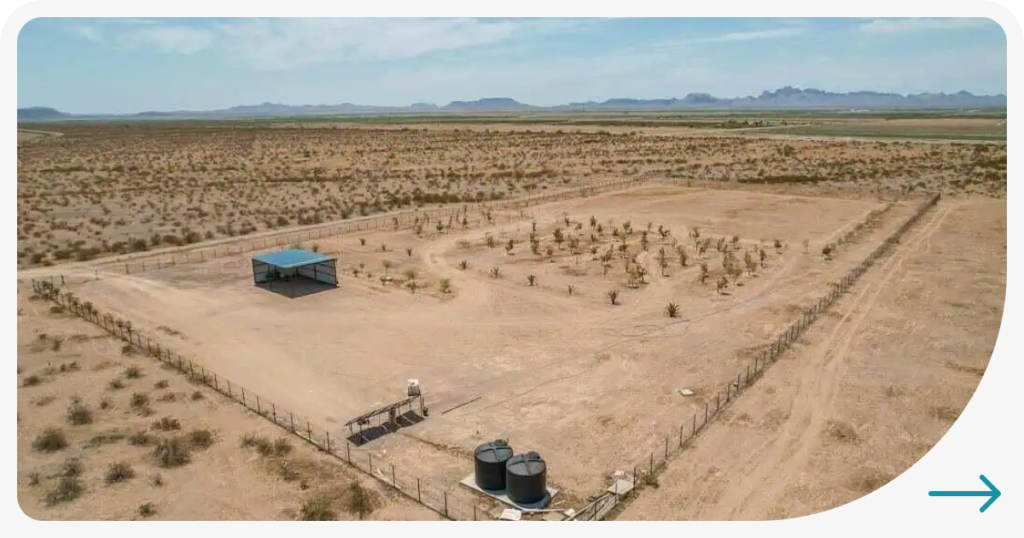When considering land development in Tonopah, Arizona, evaluating a property’s potential is crucial for a successful and profitable project. Whether you’re a seasoned investor or a first-time landowner, property evaluation can help mitigate risks and uncover the true potential of a piece of land.
In this blog, we’ll guide you through the critical factors that influence property evaluation and land development, helping you make informed decisions before moving forward with your project.
What is Property Evaluation?
Property evaluation is the process of assessing a property’s suitability for development based on a variety of factors. These factors can include zoning laws, infrastructure availability, environmental conditions, and market trends. Proper property evaluation ensures that your investment aligns with your long-term goals and that there are no hidden risks that could derail your project.
In Tonopah, Arizona, where land development opportunities are abundant but diverse, understanding how to evaluate a property’s potential is essential to avoid costly mistakes.
Zoning Laws and Regulations
Zoning laws play a significant role in determining what can be built on a property. In Tonopah, zoning regulations may vary depending on the location of the property, its proximity to residential or commercial areas, and future development plans. Understanding these regulations will help you avoid purchasing land where your intended development may be restricted or prohibited.
Start by checking the property’s zoning classification through the local zoning office. Tonopah, being an unincorporated area in Maricopa County, has specific zoning ordinances that govern land use. Some properties may be zoned for agriculture, residential, or mixed-use development, and any changes to zoning laws can significantly affect your project. Knowing what is permitted or restricted will guide your decision-making process.
Environmental and Topographical Considerations
When evaluating a property for land development, understanding its environmental and topographical characteristics is crucial. In Tonopah, the land varies from flat desert areas to regions with more rugged terrain. Factors such as soil quality, drainage, and floodplain risks must be considered. Properties in flood-prone areas or those with unstable soil may require more costly mitigation strategies or be unsuitable for certain types of development.
Conducting an environmental assessment and land survey can provide valuable insights into potential challenges that could arise during the development process. You might also need to check whether the property falls within any protected areas, such as conservation lands, which could limit development opportunities.
Infrastructure and Accessibility
For a successful land development project, access to infrastructure is vital. In Tonopah, you should evaluate the proximity of the property to major roads, highways, and public transit options. Easy access to transportation routes can increase the property’s value and appeal to potential buyers or tenants.

In addition to roads, check the availability of utilities such as water, electricity, sewage, and internet access. Properties without these essential services may require significant investment to bring infrastructure to the site, impacting the overall feasibility of your project. In some rural areas of Tonopah, access to utilities may be limited, so it’s important to factor this into your property evaluation.
Market Trends and Demand
Analyzing market trends is a key component of property evaluation. In Tonopah, land values are influenced by the area’s growth potential, proximity to Phoenix, and demand for residential or commercial properties. Researching local market trends and demographic data can help you determine whether land development will be profitable in the area.
Look for signs of growth, such as an increase in population, new businesses opening, or infrastructure projects in the area. Tonopah’s proximity to Phoenix makes it an appealing option for future development, particularly for residential or mixed-use projects. Understanding the long-term demand in the area will help you decide if the property you’re considering has the potential for growth and profitability.
Financial Feasibility and ROI
Assessing the financial feasibility of a land development project is an essential aspect of property evaluation. To do so, you need to consider both the initial costs of purchasing the land and the expenses associated with developing it. This includes costs for construction, permits, and infrastructure improvements, as well as any ongoing maintenance or property taxes.
A thorough financial analysis should also include projected returns on investment (ROI). By comparing potential costs with expected market value, you can determine whether your land development project will provide a positive return. Be sure to factor in both short-term and long-term gains when evaluating the financial viability of your land development.
Legal and Permitting Requirements
Before starting a development project in Tonopah, Arizona, ensure that you understand the legal and permitting requirements for your property. In addition to zoning regulations, you may need permits for construction, environmental assessments, and utility installation.
Legal considerations are also crucial in property evaluation. Ensure the title of the property is clear of disputes, and check for any encroachments or legal issues that could impact your ability to develop the land. Working with real estate attorneys and local government offices will help you navigate these potential challenges.
Tools and Resources for Property Evaluation
There are several tools and resources available to help with property evaluation. In addition to GIS mapping and satellite imagery, which can give you an overview of the land’s topography and surrounding area, you can also use property evaluation software that provides detailed insights into land values, market trends, and zoning laws.
While some initial research can be done on your own, working with professionals such as land surveyors, environmental consultants, and real estate agents is often the best way to get a comprehensive understanding of a property’s development potential.
Final Thoughts…
Property evaluation is a crucial step in assessing the potential for land development in Tonopah, Arizona. By carefully considering factors such as zoning laws, environmental conditions, infrastructure, market trends, and financial feasibility, you can ensure that your investment leads to a successful project.
At Pinacore Development, we specialize in helping investors and future landowners navigate the complexities of property evaluation and land development in Tonopah and beyond. Our team of experts can provide you with the insights and guidance you need to make informed decisions and achieve long-term success. If you’re ready to explore land development opportunities in Tonopah, contact us today for a consultation!

